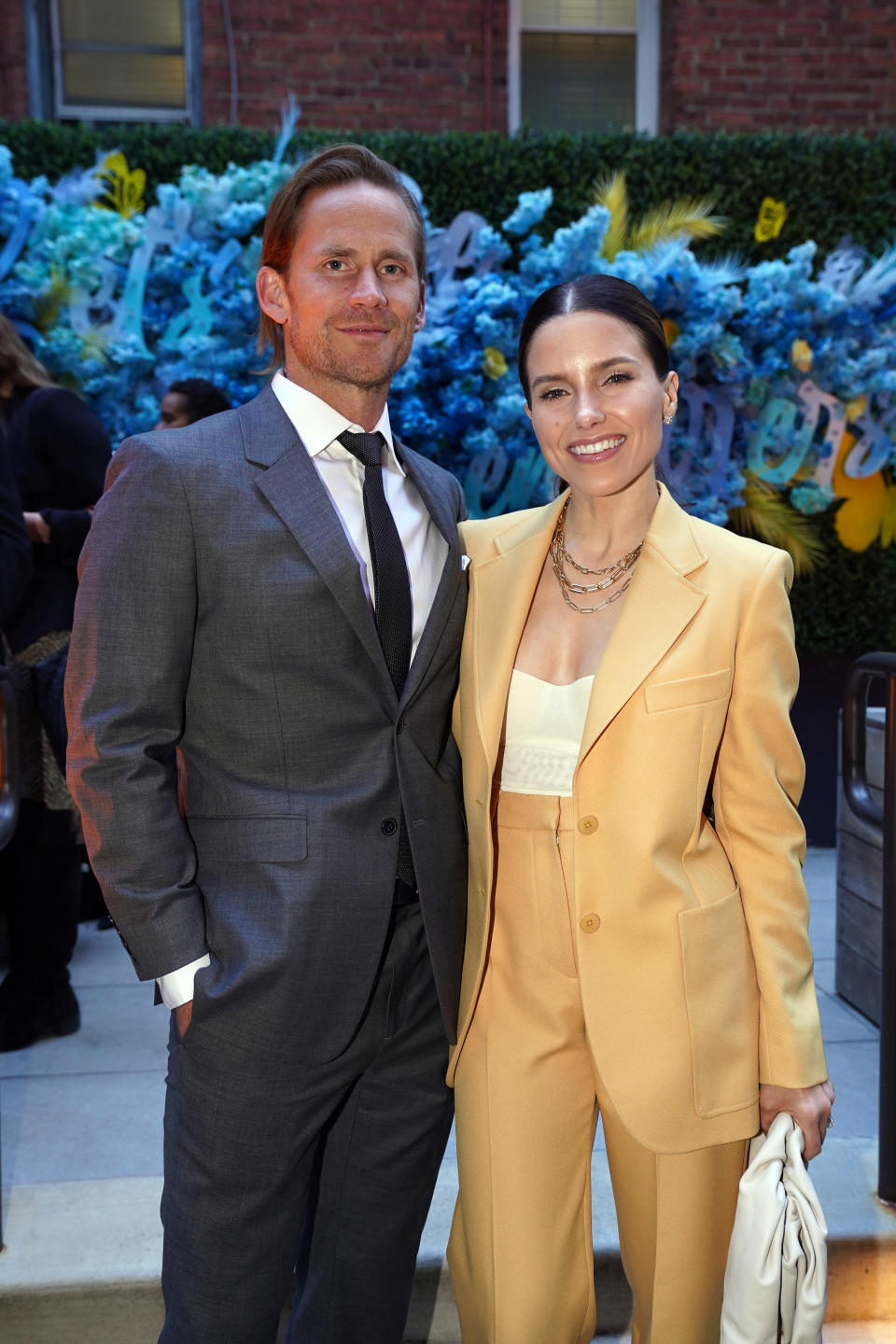Sophia Bush and her husband Grant Hughes are opening up following the recent overturning of Roe v. Wade.
In an essay written by Bush and Hughes for Glamour, the actress explained that when Hughes was in his 20s, his ex-girlfriend got an abortion. It was a decision that changed the trajectory of his life — as well as Bush’s.
“This moment is nothing short of a national emergency, but these days it also feels incredibly personal,” Bush wrote. “I type this as I look across the kitchen at my husband,” she continued. “A man with whom I am deeply in love. And a man who might never have come into my life, nor me into his, had it not been for an abortion. Not my experience — I have never had an abortion — but his. An abortion that he and a former partner had is what got us here.”
“Because the love of my life and a former partner of his had access to an abortion in his past, he and I have a future,” the Good Sam star wrote. “Because a young couple in their 20s had access to reproductive care, the two of us are now actively planning a family.”
At the time Hughes and his ex had the abortion, he was a public school teacher making $37,000 a year and was “barely scraping by on his own, with close to zero savings.” The two had just broken up a few hours before he received a call from her telling him she was pregnant.
“When he heard the news, he knew it would dramatically change the trajectory of his life, and hers too,” Bush wrote. “But — he told me — it wasn’t his body, and he had to listen to what she wanted. He said that he asked questions and tried to understand her experience, but he also didn’t feel it was his place to offer an opinion.”
“Instead,” she explained, “he offered support, explaining that he would be there with her regardless. He didn’t want to be the man pressuring a woman to have an abortion, for financial reasons or otherwise. He said he’d known men who’d done that, and that watching them exert that kind of control was disturbing.”
At the time, while Hughes and his ex had access to care, they “almost couldn’t afford” the $600 it cost for the procedure, which was around 25% of Hughes’s monthly income.
“I watch Grant’s face as he tells his story,” Bush wrote. “In it, I can see a morphing of his earlier self. I see the young man who was terrified — ending a relationship with someone that he knew wasn’t his forever person, with a potentially forever-altering situation on his hands. Would his life change forever simply because he had explored the world of dating? Were they both to be punished?”
Bush and Hughes married in his home state of Oklahoma just a few weeks ago. The state is one of 13 outlining strict plans to “unequivocally ban abortion” access following the overturn, she writes.
The irony of getting married in the state was not lost on Bush. “Oklahoma ranks among the worst states for women dying during or shortly after pregnancy,” she pointed out. “For a ‘pro-life’ state, the pro-living part seems to end at birth for a baby and isn’t ever applied to the person carrying it.”
When thinking about what “could have been,” Bush said it’s important for men like Hughes to share their experiences with abortion to remind others that family planning is a conversation that impacts both the mother and the father’s future.
“One door might’ve been forced to remain open, and thus the door that led the two of us — to our joy, our love, and our future — would have closed,” she explained. “He would have likely been pouring his income and effort into caring for a family. He might have ‘done the right thing’ and asked to marry his ex. She might have said yes because of the pressure, even though she knew he wasn’t her person. Even though she wanted to say no.”
“They might have had more kids,” she continued. “They might’ve wound up divorced and fighting over custody. Any number of hard and distressing things might have happened to them because one unplanned thing once did. But they were able to choose, together. And because of choice, they were each able to move on. Gently past each other, and their season together, to pursue the futures of their dreams.”
Bush concluded the essay by pointing out that the “fundamental right” to choose your future, and not have the government choose for you, is a right that over 25 million women lost following the overturn of Roe.
“The long-term benefits of bodily autonomy and privacy — and the ability of being able to plan and choose our families — has been stripped away from us. From our partners too,” she wrote. “So many of us may have benefitted from now-stripped access to abortion care, whether we know it or not. Me, from the abortion of a woman I do not know. You, from the abortion you’ve had or that your partner has had.”
“This is why we need to tell our stories — men, women, all of us,” she added. “To remember that our liberty is deeply bound together. Autonomy gives us not only the power to determine our present, in every moment, but the boundless potential of our futures. Bigger. Brighter. More loving. More than we could have ever imagined. That’s what our love story is. More than my then 20-something partner could have ever dreamed. More than I thought possible. And for that, we are both grateful.”
Want lifestyle and wellness news delivered to your inbox? Sign up here for Yahoo Life’s newsletter.




